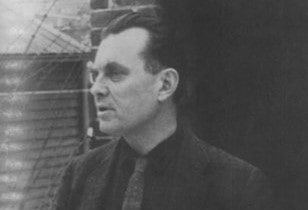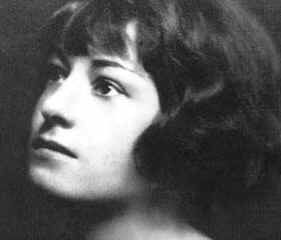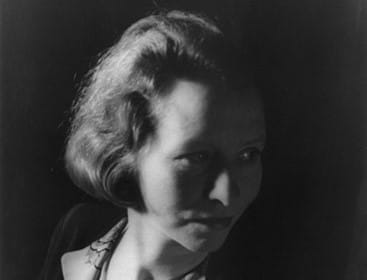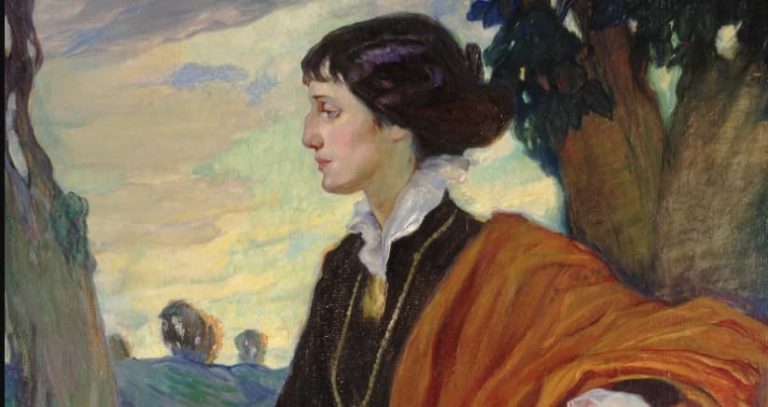10 of the Best Mary Oliver Poems
One of America’s finest poets, who taught us to envision nature in a new light, is none other than our very own Mary Oliver. Her poems combine natural imagery with the personal and take us to a place where the thin line between the wild and domesticated blurs. Famous for her solitary walks among the woods of Provincetown and New England, Oliver kept her thoughts to poetry and refrained from pouring out her life in public.
Oliver published her first collection, No Voyage and Other Poems (1963) at the age of 28. After that, she went on to publish several collections concluding with Devotions (2017) published two years before her death. Her American Primitive (1983) won the Pulitzer Prize for Poetry. Oliver was also the recipient of the Shelley Memorial Award, PEN New England Award, and National Book Award for Poetry.
On this list, we are going to share 10 of the most famous Mary Oliver poems every poetry lover should read. The list contains a wide variety of her poems tapping on the themes of nature, life, death, love, and gratitude. What are you waiting for? Let’s dive into the list of top 10 poems of Mary Oliver.

Wild Geese
“Wild Geese” is one of the best-loved poems of Mary Oliver. It was first published in the collection, Dream Work (1986). Packed with the rhythm of free-verse form, intricately conjoined lines, and occasional pauses make this piece a liberating read. It, indeed, liberates us from our griefs, guilts, and grudges, asking us to embrace things as they are. Answering the slowly fading call of the wild geese, we must move on.
Listen to how Oliver’s soft, mellowing voice enthralls the audience while she reads her dear poem “Wild Geese”:
You can also read the poem below. While reading, focus on the repetitions, occasional caesuras, and the soft-breeze-like flow of the lines, halting and blowing again.
You do not have to be good.
You do not have to walk on your knees
for a hundred miles through the desert, repenting.
You only have to let the soft animal of your body
love what it loves.
Tell me about despair, yours, and I will tell you mine.
Meanwhile the world goes on.
Meanwhile the sun and the clear pebbles of the rain
are moving across the landscapes,
over the prairies and the deep trees,
the mountains and the rivers.
Meanwhile the wild geese, high in the clean blue air,
are heading home again.
Whoever you are, no matter how lonely,
the world offers itself to your imagination,
calls to you like the wild geese, harsh and exciting —
over and over announcing your place
in the family of things.
A Dream of Trees
Another of Oliver’s most famous poems, “A Dream of Trees,” was published in her first poetry collection No Voyage, and Other Poems (1963). In this poem, the speaker shares one of her dreams, which is none other than of trees. A dream, where she finds solace, cannot be traced to reality. The causes are explicit; rapid urbanization, deforestation, burgeoning consumerism, and death are among the significant reasons. The poet concludes with a sigh,
I would it were not so, but so it is.
Who ever made music of a mild day?
Explore the full poem below:
There is a thing in me that dreamed of trees,
A quiet house, some green and modest acres
A little way from every troubling town,
A little way from factories, schools, laments.
I would have time, I thought, and time to spare,
With only streams and birds for company,
To build out of my life a few wild stanzas.
And then it came to me, that so was death,
A little way away from everywhere.
…
There is a thing in me still dreams of trees.
But let it go. Homesick for moderation,
Half the world’s artists shrink or fall away.
If any find solution, let him tell it.
Meanwhile I bend my heart toward lamentation
Where, as the times implore our true involvement,
The blades of every crisis point the way.
…
I would it were not so, but so it is.
Who ever made music of a mild day?
The Journey
“The Journey,” a free-verse poem, is one of Oliver’s best-known ones. This poem features one speaker’s journey into nature, freeing herself from the stiff clutches of her close ones. The voices around kept pulling her back, yet she knew what she had to do, what was the best she could do to save the “only life” that kept humanity alive.
Listen to Oliver reading the poem “The Journey” alongside the full text provided below:
One day you finally knew
what you had to do, and began,
though the voices around you
kept shouting
their bad advice—
though the whole house
began to tremble
and you felt the old tug
at your ankles.
“Mend my life!”
each voice cried.
But you didn’t stop.
You knew what you had to do,
though the wind pried
with its stiff fingers
at the very foundations,
though their melancholy
was terrible.
It was already late
enough, and a wild night,
and the road full of fallen
branches and stones.
But little by little,
as you left their voices behind,
the stars began to burn
through the sheets of clouds,
and there was a new voice
which you slowly
recognized as your own,
that kept you company
as you strode deeper and deeper
into the world,
determined to do
the only thing you could do—
determined to save
the only life you could save.
The Summer Day
“The Summer Day” was first published in Oliver’s 1990 collection, House of Light, winner of the Pen New England Award. This piece begins with three back-to-back rhetorical questions, asking readers about the creator of the world and the wild creatures:
Who made the world?
Who made the swan, and the black bear?
Who made the grasshopper?
Then, she continues to describe a grasshopper, its tiny, little movements, and how it eats sugar out of her hands.
This grasshopper, I mean—
the one who has flung herself out of the grass,
the one who is eating sugar out of my hand,
who is moving her jaws back and forth instead of up and down—
who is gazing around with her enormous and complicated eyes.
Now she lifts her pale forearms and thoroughly washes her face.
Now she snaps her wings open, and floats away.
In the last few lines, Oliver comes to the main point. She taps on the theme of the futility of life and the inevitability of death. With regards to these themes, she advises us to make the most of this “one wild and precious life”.
I don’t know exactly what a prayer is.
I do know how to pay attention, how to fall down
into the grass, how to kneel down in the grass,
how to be idle and blessed, how to stroll through the fields,
which is what I have been doing all day.
Tell me, what else should I have done?
Doesn’t everything die at last, and too soon?
Tell me, what is it you plan to do
with your one wild and precious life?
“The Summer Day” is one of Mary Oliver’s forty favorite poems. The mesmerizing recordings of these poems in the poet’s own voice were published as At Blackwater Pond: Mary Oliver reads Mary Oliver. Listen to the poet reading “The Summer Day,” also known as “The Grasshopper”:
When Death Comes
Mary Oliver’s most popular poem “When Death Comes” is mostly remembered for these powerful lines:
When it’s over, I want to say: all my life
I was a bride married to amazement.
I was the bridegroom, taking the world into my arms.
This piece was first published in her National Book Award-winning collection, New and Selected Poems (1992). She also included this memorable poem in her last collection, Devotions (2017).
In this poem, Oliver discusses her attitude toward death like Emily Dickinson does in her poem “Because I could not stop for Death –”. The first lines depict the coming of personified death:
When death comes
like the hungry bear in autumn;
when death comes and takes all the bright coins from his purse
…
to buy me, and snaps the purse shut;
when death comes
like the measle-pox
…
when death comes
like an iceberg between the shoulder blades,
…
I want to step through the door full of curiosity, wondering:
what is it going to be like, that cottage of darkness?
The rest of the lines showcase the poet’s fearlessness and her wish to live life to the fullest.
When it’s over, I don’t want to wonder
if I have made of my life something particular, and real.
I don’t want to find myself sighing and frightened,
or full of argument.
…
I don’t want to end up simply having visited this world.
In Blackwater Woods
One of the best-loved, oft-quoted poems of Mary Oliver, “In Blackwater Woods” was originally published in her fifth collection, American Primitive (1983), winner of the 1984 Pulitzer Prize for Poetry. This free-verse poem is based on the Blackwater woods around a nameless freshwater pond of Province Lands in the Cape Cod National Seashore, Provincetown, Massachusetts.
The opening lines welcome readers to visit her abode: the woods near one pond, where the hardening barks give off the rich fragrance of cinnamon. After reading the following lines from the poem, we can easily create a mental image of the landscape:
Look, the trees
are turning
their own bodies
into pillars
…
of light,
are giving off the rich
fragrance of cinnamon
and fulfillment,
…
the long tapers
of cattails
are bursting and floating away over
the blue shoulders
…
of the ponds,
and every pond,
no matter what its
name is, is
…
nameless now.
In the last lines, Oliver notes what are the three most important things one can do in life.
To live in this world
…
you must be able
to do three things:
to love what is mortal;
to hold it
…
against your bones knowing
your own life depends on it;
and, when the time comes to let it go,
to let it go.
Morning
Here’s another lovely poem from Oliver’s National Book Award-winning collection, New and Selected Poems (1992). “Morning” is about the poet, who on a fine morning, meditates upon the most mundane objects of her cold kitchen and notices the gestures of her black cat. This piece explores her awe at the wonderful things surrounding her little world.
Salt shining behind its glass cylinder.
Milk in a blue bowl. The yellow linoleum.
The cat stretching her black body from the pillow.
The way she makes her curvaceous response to the small, kind gesture.
Then laps the bowl clean.
Then wants to go out into the world
where she leaps lightly and for no apparent reason across the lawn,
then sits, perfectly still, in the grass.
I watch her a little while, thinking:
what more could I do with wild words?
I stand in the cold kitchen, bowing down to her.
I stand in the cold kitchen, everything wonderful around me.
White-Eyes
It’s one of Mary Oliver’s winter poems. “White-Eyes” is an intelligent, yet simple poem about the wintry wind. The speaker imagines it to be a white-feathered bird, which calls the clouds from the north. Then, it begins to snow and the wind-bird sleeps. The poems first appeared in the October-November 2002 issue of Poetry. Read this beautiful snowy piece below:
In winter
all the singing is in
the tops of the trees
where the wind-bird
…
with its white eyes
shoves and pushes
among the branches.
Like any of us
…
he wants to go to sleep,
but he’s restless—
he has an idea,
and slowly it unfolds
…
from under his beating wings
as long as he stays awake.
But his big, round music, after all,
is too breathy to last.
…
So, it’s over.
In the pine-crown
he makes his nest,
he’s done all he can.
…
I don’t know the name of this bird,
I only imagine his glittering beak
tucked in a white wing
while the clouds—
…
which he has summoned
from the north—
which he has taught
to be mild, and silent—
…
thicken, and begin to fall
into the world below
like stars, or the feathers
of some unimaginable bird
…
that loves us,
that is asleep now, and silent—
that has turned itself
into snow.
Reckless Poem
This poem is not “reckless” for the use of words, but for the poet’s recklessness to be one with nature and different creatures. While she is out there, she does not remain herself. She becomes one with anything living she happens to come across:
Just yesterday I watched an ant crossing a path, through the
tumbled pine needles she toiled.
And I thought: she will never live another life but this one.
And I thought: if she lives her life with all her strength
is she not wonderful and wise?
And I continued this up the miraculous pyramid of everything
until I came to myself.
…
And still, even in these northern woods, on these hills of sand,
I have flown from the other window of myself
to become white heron, blue whale,
red fox, hedgehog.
Oh, sometimes already my body has felt like the body of a flower!
Sometimes already my heart is a red parrot, perched
among strange, dark trees, flapping and screaming.
“Reckless Poem” was published in Volume 6, No. 3 of Five Points in 2002.
August
“August,” another wonderful poem from the collection American Primitive (1983), is about a speaker savoring the rich taste of blackberries, in the brambles not owned by anyone. She is free to spread her “happy tongue,” and drink the “black honey of summer” all day long.
When the blackberries hang
swollen in the woods, in the brambles
nobody owns, I spend
…
all day among the high
branches, reaching
my ripped arms, thinking
…
of nothing, cramming
the black honey of summer
into my mouth; all day my body
…
accepts what it is. In the dark
creeks that run by there is
this thick paw of my life darting among
…
the black bells, the leaves; there is
this happy tongue.
Apart from these poems in our list of top 10 Mary Oliver tries, her other best-known poems include:
- “Morning Poem”
- “Singapore”
- “Daisies”
- “At Blackwater Pond”
- “A Visitor”
We hope you’ve enjoyed these incredible poems. You can also explore the greatest poems of other poets as well.
FAQs
“Wild Geese” is one of the most famous poems of Mary Oliver. Her other best-loved poems include “A Dream of Trees,” “The Journey,” “The Summer Day,” and “When Death Comes.”
Mary Oliver is one such poet who could write exceptional verses with simplicity, agility, and style. Her poems are easy to understand and all-embracing. That’s why she is so good. Read her poems, such as “Singapore” and “Every Morning” to witness her unique art of versification.
Mary Oliver wrote mainly free-verse poems with a set rhyme scheme or structure. She preferred the rhythm of nature that is not controlled by any specific rules. Her poetry contains short lines, occasional rhythm, and conversational flow.
Some of the best collections of Mary Oliver are American Primitive (1983), winner of the Pulitzer Prize for Poetry, House of Light (1990), which won the PEN New England Award, and New and Selected Poems (1992), which received the National Book Award for Poetry.
The recurring themes in Oliver’s poems include nature, life, death, love, and spirituality. In her poems, she tries to capture the brevity of life, the inevitability of death, the paucity of time, and the sheer beauty of nature and the wild.
Useful Resources
- Check out A Mary Oliver Collection — This stunning Mary Oliver collection includes all the recent poems from her four books of poetry, including A Thousand Mornings (2012) and Dog Songs (2013).
- Check out A Poetry Handbook by Mary Oliver — In this book, Oliver guides readers to write and understand poetry. She walks readers through how a poem is built, from meter rhyme, to form and diction.
- About Mary Oliver — Read this short biography of the poet.
- A Tribute to Oliver — Watch this poetic tribute to Oliver.
- An Interview with Oliver — Watch this interview with the poet and learn more about her poetry.






